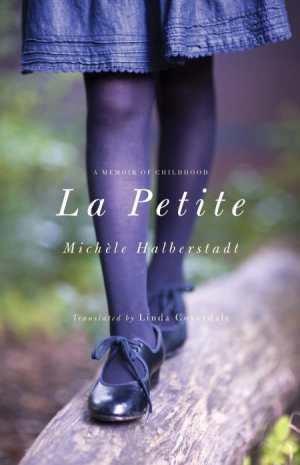Reflections on Identity from Far Afield
Homing
The Autobiography & Memoir genre has taken some lumps in recent years, thanks to authors who embellished the truth or outright lied, but our collective desire for a glimpse into the lives of others is as strong as ever. The books featured here are distinct in terms of time, place, and voice, with each drawing a reader’s empathy and appreciation for our shared humanity, bringing cultures and traditions from the farthest points on the globe home to us in a meaningful way.

“I write from a keen and pissed-off class awareness and the streaming juice of very few mangoes,” writes Joy Castro, who doesn’t so much discuss issues of identity as burn them into the reader’s brain. Island of Bones (University of Nebraska Press, 978-0-8032-7142-5) explores her upbringing as the adopted daughter of Cuban-American Jehovah’s Witnesses (a life she ran away from at fourteen to escape abuse), and her roundabout and often uncomfortable path to academia (Castro is an associate professor of English and Ethnic Studies at the University of Nebraska-Lincoln). Her short essays continually turn any easy assumptions about race, class, or faith on their head and force reevaluation and reconsideration, both of Castro herself and of our own ideas. Writers can learn much from “Grip,” which is just over one page long, and “Getting ‘Grip’,” about the process of composing the earlier piece in terms of audience, point of view, and the distance required to find the gold at the heart of a past experience. “Vesper Adest” contrasts a youth spent running away from situations with twenty years living alongside the same partner, still very much in love and observing the physical changes brought on by time with affection and humor: “I don’t feel bad about my neck,” she confesses. Written with poetic precision, this small book lives large in memory.

Like Castro, Aatish Taseer has grappled with an identity that sometimes left him at odds with himself. Lifelong estrangement from his father, a Muslim living in Pakistan, inspired the author to travel from Istanbul to Mecca, Iran, and Pakistan in search of spiritual, political, and personal connection. Stranger to History (Graywolf Press, 978-1-55597-628-6) finds Taseer confronting the knee-jerk militancy of contemporary Muslims, a world in which he is decidedly not at home (he was raised in Delhi by his Sikh mother, and for his father to have openly acknowledged him would have been political suicide). The realization that, in many places, “Islam … was not religion; it was politics,” underscores Taseer’s discoveries, which include a group of covert Hare Krishnas in Tehran and a Muslims-only McDonald’s in Mecca. His relationship with his father briefly warms, and then cools to an unbreachable divide as Taseer realizes his father’s faith is predicated on Holocaust denial, hatred of America and Israel, disdain for Hindus, a reverence for Islam’s combative past, and not much else. Father and son were estranged when Taseer was writing this book; shortly thereafter, the elder was assassinated by a bodyguard as his political aspirations began to bear fruit. Stranger to History is full of difficult truths, but also clear-eyed reporting on the contemporary Muslim world.

The broad search for identity again brushes up against an intimate and singular view in La Petite (Other Press, 978-1-59051-531-0), a brief tale told with bracing impact. Author and film producer Michèle Halberstadt was lonely within her family and ignored at school. Her grandfather was her confidant and best friend, and his death slid twelve-year-old Halberstadt’s life off its foundation: “I had been lonely,” she says. “Now I was alone.” The decision to take her own life came easily, but her subsequent hospitalization offered a new perspective and the will to try again. Linda Coverdale’s translation of this “fille, interrupted” story is clean and spare; Halberstadt’s despair is not the emotional tsunami of most pre-teens, but a corked and contained, self-directed resignation in the face of perceived rejection by her peers, parents, and sister. Her desire to rejoin the living on new terms, and being validated in her self-awareness by a caseworker reveals a genuine blossoming: “Finally, an adult who considered me normal!” exalts the author. “She had just stamped my passport for a new life. She had declared that I was right.”

Segue from the individual at odds with her family to a young woman’s struggle to keep her family close while in the crushing grip of political oppression. Carmen Bugan grew up in rural Romania, where the beauty of the landscape and wealth of love from her grandparents made her early life seem like the stuff of fairy tales. Even making due with rationed food sometimes seemed like an adventure to Bugan. In Burying the Typewriter (Graywolf Press, 978-1-55597-617-0), that bucolic life is demolished with the realization that her father is a political dissident (the title refers to a duplicate typewriter used to write antigovernment leaflets hidden underground in the family’s yard). Risking his family’s safety for his beliefs leads to her father’s arrest and imprisonment while her mother is in the hospital and her sister is away at school, Bugan is left to fend for herself as a child. Under constant surveillance, both at home and in their neighborhood, Bugan “become(s) bilingual as far as feelings go: I learn ease and unease.” After her father’s release, the family struggles to readjust, passing notes while making innocuous conversation, since the house is bugged. Constant threats from the government take their toll, though, and the family finally seeks asylum in America. Her abiding love for her relatives and ability to capture a child’s impressions of adult machinations recall Alexandra Fuller’s Don’t Let’s Go to the Dogs Tonight, while the copies of the massive dossier the government kept on her father (which Bugan was only able to access as an adult) bring home the chill of life in Romania under Ceauşescu.

Deception and denial were key to retaining power in Romania; they are often the first tactics called into use by defense lawyers as well. Clarity and truth are anything but fixed in The Shyster’s Daughter (Etruscan Press, 978-0-9832944-3-6), a memoir that reads like hardboiled noir. When Paula Priamos’s father dies, the list of possible suspects includes his immediate family and most of his legal clients, whose guilt was often glaringly apparent to Paula as a child. His financial mismanagement and endless dream-chasing among lowlifes briefly makes dreams come true; then, as so often happens, things fall apart. This look back at a family divided by divorce, geography, and grief crackles with tension, but also locates humor in their excesses and drama. Forced to decide who to stay with when the family breaks apart, Priamos remains with her father as her mother and siblings move across the country. When he dies, someone tells her, “The two of you were like a little team.” Matters are further complicated when Priamos then starts an affair with a married man whose wife won’t give him up without a fight. The narrative is flecked with several gathered quotes from family, clients, and others under the heading, “What They Told Me After He Died,” and the quotes are as dark and funny as the story itself, including a former business partner’s blunt assessment: “I know he’s your father and all, but facts are facts. The son of a bitch had it coming.” The exact circumstances of Priamos’s father’s death never come to light, but meeting the author’s family is an illuminating and sometimes disturbing journey the reader won’t forget.

Memoirs often introduce us to relative strangers, but they can also provide a new view of someone familiar. Ernesto “Che” Guevara is a figure so iconic that it’s hard to see him clearly anymore. Remembering Che: My Life with Che Guevara (Ocean Press, 978-0-9870779-3-6) offers an intimate look at the man through the memories of his widow, Aleida March. Her own path, from inquisitive student to political activist to wife and mother, may divide readers based on their views of Guevara. Those who revere him will appreciate March’s self-abnegation and attempts to keep home and hearth in the midst of unfolding history and her own sense that the couple’s time is short, while anyone who questions Guevara’s tactics must also look closely at a wife who surrendered all her own ambitions in the service of one great love. “Like the fictional Quixote, Che was full of tenderness but he never hesitated in challenging new windmills,” March says, and her loyalty and affection seemed to sustain their love through many such challenges. Remembering is full of photos of the two together at home and in their travels and reprints of some postcards Guevara sent home from his solo journeys, all of which show him as affectionate and often funny. March currently directs the Che Guevara Studies Center in Havana. This memoir is being released forty-five years after her husband’s death. In that time he has only become a more polarizing figure. This book won’t resolve Che’s conflicting legacy, but adds another valuable layer to his legend.
Heather Seggel

